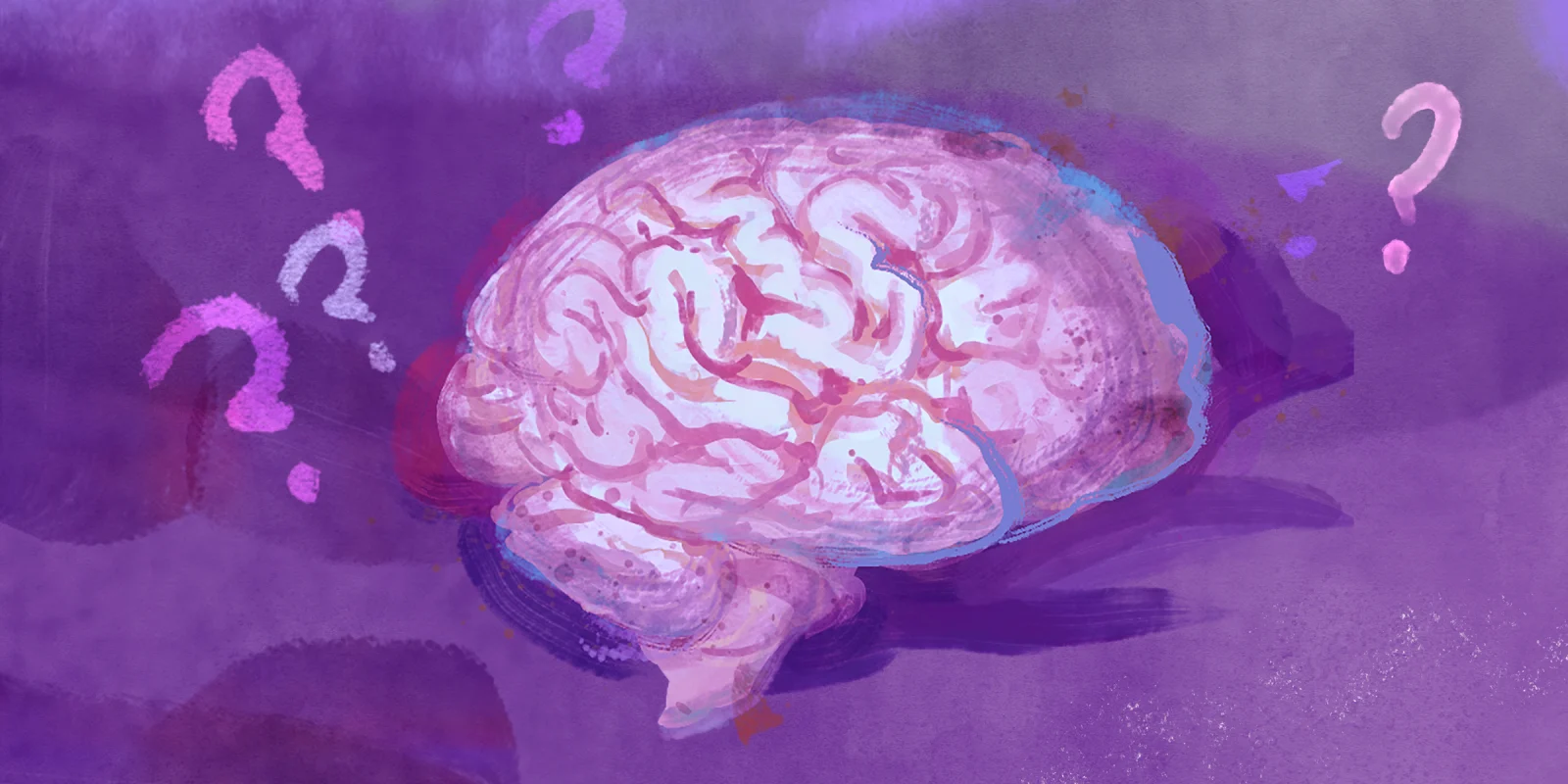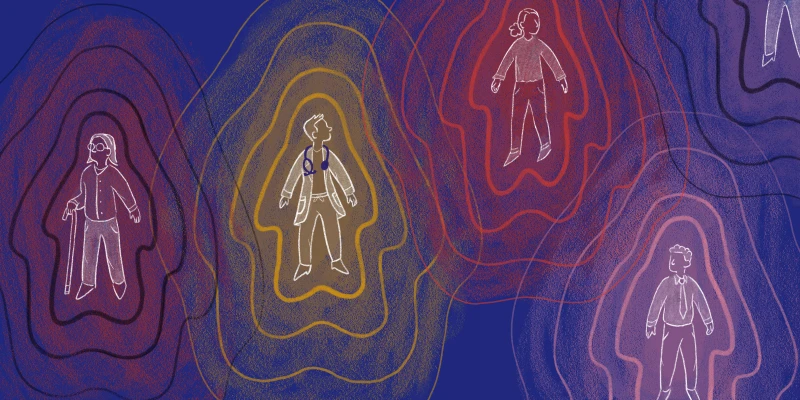Certainty in psychiatry is rare.
Theoretically, there are only a handful of things that separate us, humans, from (other) animals. One of the most important things is our ability to plan for the future. Our brain is bigger, so we can imagine different scenarios and choose what to do. But there’s a side effect to our ability to plan and predict the future: anxiety, which starts when there is uncertainty. The inability to know for sure what will happen is very scary for many people, maybe for all of us. We learn how to deal with uncertainty at a young age because it's a big part of life — and some ways to deal with uncertainty are helpful, others are not.
In psychiatry, we rely on what people tell us, what we see, and, sometimes, what people who know our patient witness and share with us. We still don't have, and probably never will have, an instrument that will tell us about the inner experience of someone else. During my residency, our program director often told us that the difference between psychiatrists and other specialists is that a psychiatrist is “comfortable with the unknown.” What does that mean? It means we are comfortable, or at least aspire to be comfortable, treating patients without having a definite diagnosis.
When I first started working in outpatient settings, seeing patients in the office, the unknown was – suddenly – very real to me. People would tell me their life story, or the life story of their psychiatric complaint, and after an hour, would expect some sort of solution to what was often a lifetime of pain. Obviously, there’s a method for doing a first psychiatric interview and I gathered information that would help me come to an initial conclusion regarding a diagnosis and possible treatment. I would discuss the possible medication, or psychotherapy, or a combination of both, and we’d start our journey toward “feeling better.” But, being a psychiatrist, you learn that you treat people before you even know their “real” diagnosis.
Gail was one of my first patients in the clinic that I did not “inherit” from a graduating resident. She was in her 40s and had just moved to the city. She told me she had been treated for schizophrenia with aripiprazole (which is largely viewed as a “lightweight” antipsychotic) and that she had also been prescribed a stimulant medication for ADD. She didn’t make clinical sense to me. She was dressed well, she had the ability to express a wide range of emotion, which is often impaired in patients with schizophrenia, and she was able to form a connection with me in our discussion. Despite being unemployed and not being the primary caretaker for her own children, she seemed fairly “normal.” She told me about traumatic experiences, how she had been almost killed by her ex-boyfriend, and how she had been doing fairly well in the last year. She obviously had symptoms of ADD, but she was also a little depressed and suffering from symptoms of PTSD. In retrospect, when she shared stories about living abroad and her experiences with meditation, it probably clouded my young judgment (an example of the infamous countertransference). I told her that when we increased her dose of aripiprazole to the full dosage, and when she was stable, we’d reevaluate her clinical status regarding ADD, and, if it was appropriate, I’d prescribe her the stimulant, a controlled substance.
Gail did well. She moved in with her mother, looked for a job, started dating, saw her kids regularly, had fewer symptoms of PTSD, and stopped feeling depressed. On the other hand, she continued to complain about not being able to play with her kids, not being able to read, and not being able to write poems. Eventually, I prescribed her a stimulant. It was a low dose, she was happier, but still had symptoms. I increased the dosage a bit more. After about two weeks, Gail came to the office exhibiting psychotic mania. Her mother had kicked her out, and I helped her find a new place to stay. I also moved from my working diagnosis of PTSD and depression with ADD to a new diagnosis of bipolar disorder, PTSD, and maybe ADD.
A month went by and though the mania resolved, the psychosis did not. I increased the aripiprazole and, thankfully, she agreed to take it. She was getting a little better but the paranoia was still always there. I changed my diagnosis again from bipolar, PTSD, and ADD to schizoaffective disorder and PTSD. The ADD now seemed to me like the negative symptoms of a psychotic disorder (a syndrome typical for patients with prolonged psychosis in which cognitive and communicative abilities decrease).
Then, Gail stopped coming. I learned she had been hospitalized in her hometown. When she got out, she was again behaving very similarly to how she had been when I first met her — only this time she told me she needed to confess. She said she had been abusing phencyclidine (known as PCP) and had been very sneaky with the drug tests. Again my diagnosis changed: drug-induced psychosis, PTSD … and ADHD?
By this point, I didn’t really know what my role was in Gail’s life and recovery plan. And I’ll never know … and you know what? That’s OK.
Being comfortable with the unknown does not mean I do not have anxiety about treating what I don’t know. It means I respect the unknown. Gail wasn’t open about her drug abuse; many patients are not open about their real symptoms or motives, often because they aren’t aware of them. As I’ve become a more experienced psychiatrist, it has become easier to recognize when someone is being truthful; when a patient is aware, unaware, or malingering. My real focus is less on problem-solving and more on the process of solving the problem with all the necessary humanity and science. With that focus, it’s become much easier to be comfortable.
All names and identifying information have been modified to protect patient privacy.
Dr. Yehonatan Shilo is a psychiatrist with an international perspective on health care. He completed his education in Italy and has practiced medicine and psychiatry in Israel and the United States. He has special interests in underserved populations, health care policy and psychotherapy. He is a 2020–2021 Doximity Op-Med Fellow.
Illustration by Jennifer Bogartz







